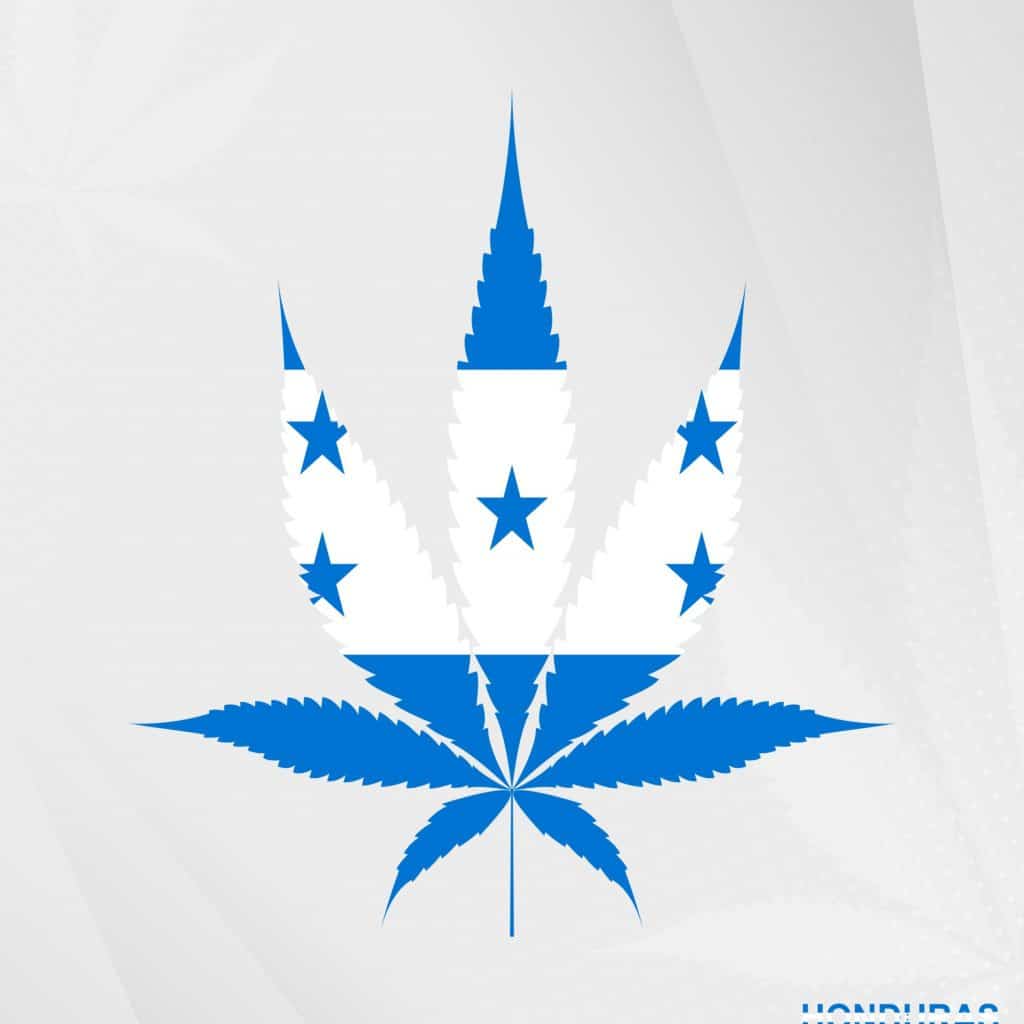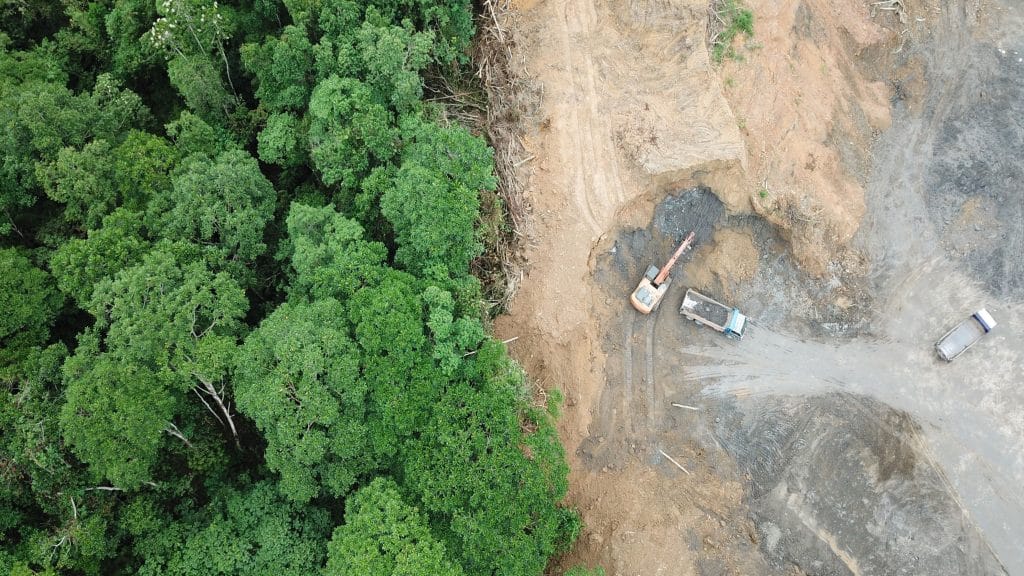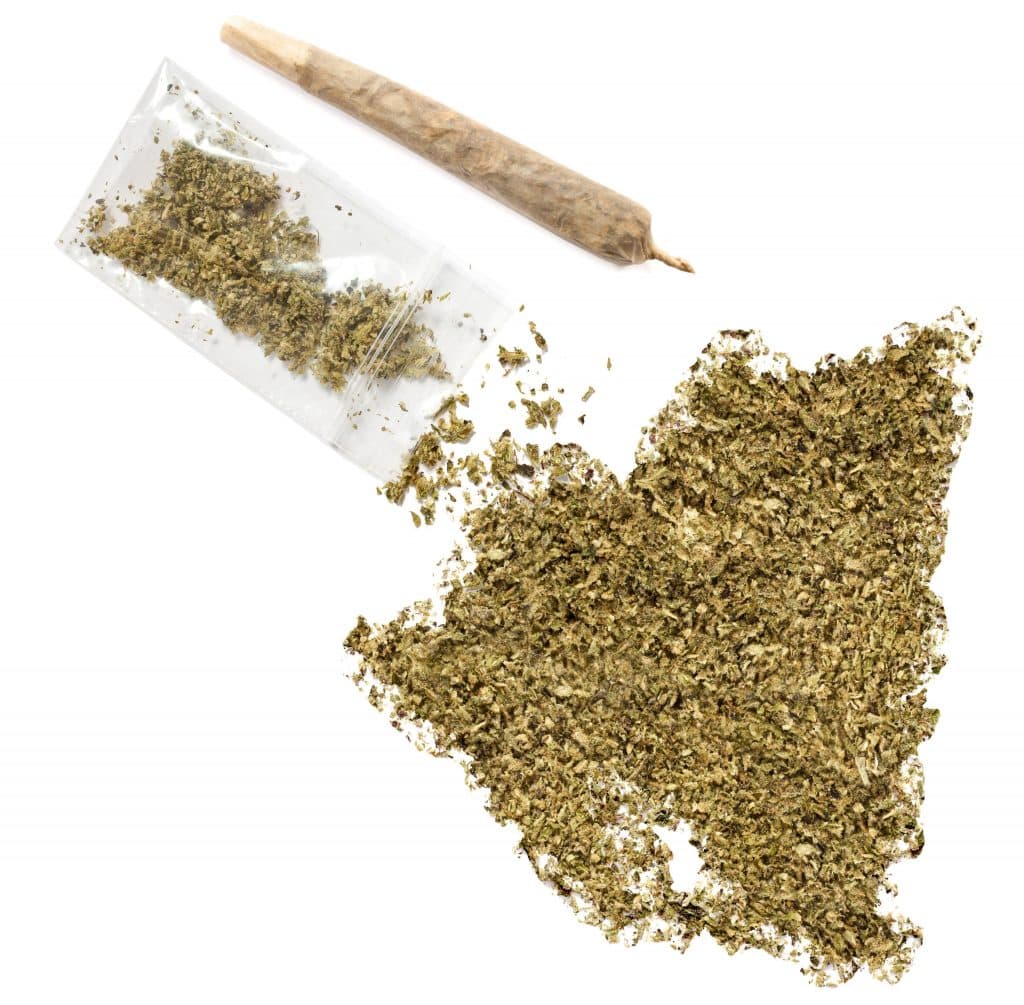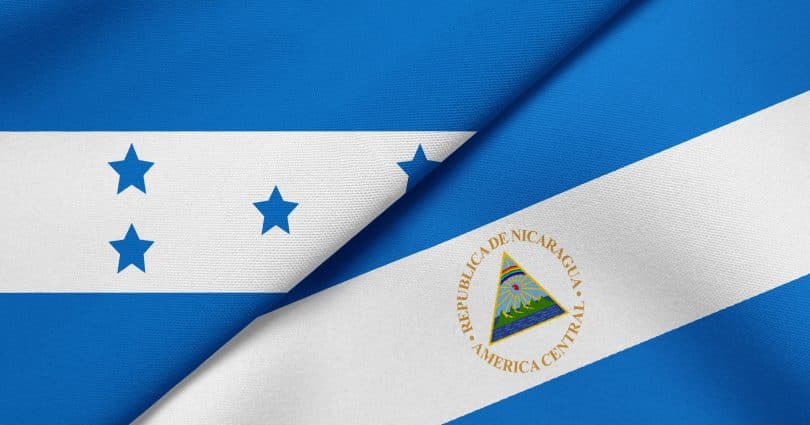Legalization measures are spreading like wildfire, and often one situation in the world, helps to propel another in a sort of chain reaction. It looks like that might explain what’s going on in Central America right now, where it seems a chain reaction of cannabis thought in Honduras, might have propelled similar thinking in Nicaragua.
Sometimes cannabis thinking can cause a chain reaction, like what’s going on in Honduras and Nicaragua, where one announcement in one country, spurred another announcement in a neighboring country. This news site is dedicated to independent reporting of the cannabis and psychedelics fields. Keep pace by subscribing to the THC Weekly Newsletter, and also get yourself access to some pretty sweet deals on all kinds of products including cannabinoid compounds like: HHC-O, Delta 8, Delta 9 THC, Delta-10 THC, THCO, THCV, THCP & HHC. Choose your products carefully, there are plenty of options and no one should buy a product they are unhappy with.
First, Honduras
Honduras is located in Central America, with Guatemala to the west, Nicaragua to the south-east, and El Salvador to the south-west. To its north is the Gulf of Honduras, an inlet of the Caribbean Sea. Honduras has a population of over nine million, and has a human development index of .625, though this lowers to .443 when adjusting for income inequality. Honduras is one of the most dangerous countries in the world in terms of violence. In 2012, the murder rate was as high as 92 per 100,000 people.
Honduras functions as a major transit point for international drug traffickers getting drugs to the States. This fuels much of the violence, which is related to disputes among criminal organizations. The legislature of the country has tried different strategies to decrease these issues, but not much has stuck.
Cannabis is illegal for all uses in Honduras. Currently, drug use in Honduras is regulated under Decree N° 136/89 – The ‘Law on the improper use and illicit trafficking of drugs and psychotropic substances’. This law came into effect in November of 1989, and is meant to control, (and prevent) drug production and trafficking, as well as possession and use. It covers narcotics and psychotropic substances, and offers punishments for crimes committed.

Decree 126/89 covers cultivation, production, trafficking, and transport of drugs. Its article 7 bans planting, cultivation, gathering plants/seeds with psychoactive/narcotic ingredients, and production of products. Penalties range from rehab treatments and fines (500-1000 Lempiras = $20-40) for first personal possession offenses, to 20 years for drug trafficking. Personal possessors caught more than once have increased treatment time and fines the second time around, and can then be held upon a third time, until they’re deemed ready to return to society.
The news on Honduras and cannabis
Honduras, like much of the rest of the world, is interested in what a cannabis industry can do for the country. Vice-president Salvador Nasralla says legalizing cannabis could bring as many as 17,000 new jobs to locals and could help with the country’s high unemployment rate. Honduras has as many as 350,000 residents unemployed, and another massive 2.4 million who are not earning enough to get by (underemployed). Nasralla is the first vice-president appointed by new president Xiomara Castro. Castro is the first female president of the country, and was sworn in this past January. However, Castro is not as supportive.
Castro’s own husband, Manuel Zelaya, was also president from 2006-2009. Though both are left-leaning, they don’t support the cannabis reform bill recently put forward by Nasralla. In fact, Zelaya had this to say about it: “We do not support the idea of starting to plant drugs as has been proposed. The president of Honduras has made the firm decision to combat drug trafficking and will combat its consumption. If there is drug trafficking, there are drug traffickers and if there are drugs, then there are consumers, so that must be eradicated from the country.”
The situation now pits standing president against standing vice-president (who was chosen by the president). There are several arguments against getting involved in the industry, beyond the obvious one that most people assume. One of the most important arguments, is that past attempts to thwart drug industries, (by pushing other industries like exporting fruit), have led solely to Honduras losing profits to non-Honduran companies.
If Honduras were to legalize, it would need to set up indoor cultivation to be competitive. This itself is costly and means allowing foreign companies in for investment, which circles right back around to Honduras losing out to richer countries. That Honduras is considering this issue at all is good. It shows a direct desire to protect the interest of the people, and a fear of getting into international business which could harm them.
It’s also well understood in the country, that simply legalizing won’t end the illegal drug trade, and that the two operating together could get rather messy. This is no small issue, but is often figured as the biggest factor. Yet another major issue to consider in the country, is deforestation. Though an indoor-grown market is superior, a legalization would mean plenty of weed grown outdoors as well, and in a country like Honduras, that means cutting away more rain forest for plants. This is not the first time the issue of deforestation has arisen in this new weed industry.

With so much of the world looking to get in on it, (including countries like Colombia which also suffer from huge drug trafficking issues), its hard to imagine that Honduras won’t, though whether this move is beneficial or not is certainly questionable. Chances are, it’ll happen eventually, for better or worse. Regardless of when, however, it seems Nasralla’s effort has inspired another country: Nicaragua.
Nicaragua and cannabis
Much like its neighbor Honduras to the north-west, Nicaragua is completely cannabis illegal, and generally poor with possibly over half the population living under the poverty line. All possession and use for medical or recreational purposes is federally illegal. Punishments range from 10-25 years in prison, and fines of 5-10 times the value of the criminal activity, for any financing of cannabis crimes. Even personal cultivation is met with 5-10 years in prison, and 100-150 ‘day fines’ (equal to 1/3 of daily earnings for the accused). There are several bans in place, that all equal an inability to cultivate, transport, produce, or sell cannabis (or other drug) products.
The country of over six million is helmed by Daniel Ortega, the standing president since 2007, and also the leader from 1979-1990. He is the longest serving non-royal leader in the Americas. Ortega led a resistance through years of struggles with US-backed contras during the Reagan administration. The 80’s were a harrowing time in that part of the world, with a Vietnam-like claim of danger from the US and accompanying attacks, making for a very bloody decade.
The political firestorm lasted many years, with the US government continuing to claim Nicaragua was a threat. Of course, that’s silly, as a tiny and poor country is never a threat to a strong and rich one, especially when there is a vast amount of land or sea between them. Perhaps some had their heads ravaged enough by headlines to believe the story, but much like most US complaints of this kind (Vietnam, Cuba, North Korea), the country in question is small, and not remotely capable of causing the damage warned of, and certainly, not to a country like the US. This should be kept in mind when the US makes another move to demonize North Korea.
I could sit and write a whole article on why the US does what it does, but the horror story of unnecessary US involvement in other countries is a constant and continuing ordeal, which several books could be written on. The current version is complete with North Korea as the biggest threat in the world now, which is just as silly as pointing at Nicaragua or Cuba. Though those problems have died down for Nicaragua, and the US stopped its baseless attacks years ago, it caused immeasurable damage by fueling the drug industry and contra groups of the time. And Nicaragua never recovered.
Much like Honduras, there are major concerns about negative aspects of a cannabis industry, but nonetheless, things are coming up for discussion. Though there is no statement about formal policy just yet, one of Ortega’s own sons stated that cannabis normalization should begin on a federal level. Juan Carlos Ortega Murillo recently began talking about how a legalization could work, and what considerations should be made. For example, as he envisions it, a legalization would include welfare provisions for citizens. This came on the heels of Honduras’s own announcement of a cannabis bill.

Nicaragua also like Honduras, has issues it must consider. For one thing, it deals with the same deforestation issue as Honduras. Another major issue is food scarcity, and food security in the country. There is fear that a cannabis industry could mean marijuana plants replacing food crops necessary for food security for residents. These two issues are very dire in Nicaragua. More and more frequently, the desire to grow cannabis has superseded such concerns, and it says quite a bit about both countries, that their leadership is not leaping onboard immediately, but watching out for their people.
The Americas and cannabis
In 2013, Uruguay set the trend by legalizing cannabis for recreational purposes, and opening up the first commercial market. It was predicted at that time that this legalization would change how other countries govern the drug as well. Since then, many countries in the Americas have changed policy. Canada legalized a few years later for recreational purposes. Many US states legalized (20 officially, 19 that count it). Mexico legalized though its supreme court. And tons of countries have put forth medical legalizations including Colombia, Argentina, and Peru.
So it’s not shocking that countries like Honduras and Nicaragua would eventually eye the industry as well. What is of note, is not the feelings of either country toward cannabis in general, but rather the fear of what a formal industry might do to them respectively. From deforestation, to food scarcity for residents, to foreign investment taking control, there are many things to weigh outside of drug trafficking. In the past, foreign investment has spelled grave misfortune for both countries, and the governance of both don’t want to see their countries used again by richer nations.
This concept is unfortunately very important right now. And it seems that in a positive showing of concern for their people, these two South American countries are not looking to follow in the footsteps of African countries like Lesotho, which are currently in the process of selling out their own people, in order to take a piece of the pie.
Conclusion
Whether cannabis will become legal in Honduras or Nicaragua remains to be seen, but that its gotten to the point of having the discussion does signal the growth of the general industry. For now, neither country wants to sell its people out to become part of the international market, but with bad economies, tons of unemployment, and a lot of violence and unrest, how long this will hold, is hard to say.
Hello readers! We appreciate you joining us at Cannadelics.com (formerly known as CBDtesters.co), your #1 location for independent coverage of the expanding cannabis and psychedelics industries of today. Drop by regularly for updates on important stories, and sign up for The Cannadelics Weekly Newsletter, so you’re always first to get the news.









